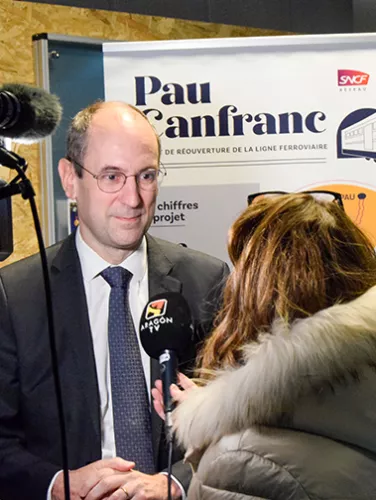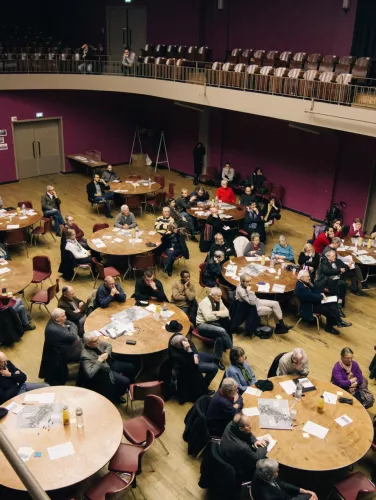Sizing projects according to need
Dialogue with stakeholders is an essential prerequisite. It enables projects to be sized according to need, with a view to smart purchasing, economic performance and reducing the consumption of natural resources.
As a signatory to the Charter for Public Participation, we conduct our business with a focus on being open and listening to our stakeholders. The challenge? To improve the rail service offering by developing projects through consultation and regional dialogue with all players concerned.
While the State sets the broad guidelines for the development of transport in France, it is the Regions that implement them at regional level. The Regions are not the only funders: other local authorities (départements, metropolises and conurbations, municipalities) can also lead mobility projects (this is particularly the case for the Metropolitan regional express services). SNCF Réseau acts as a facilitator for all these players. In this way, we regularly provide our expert input in the various political choices in the field of rail transport.

Dialogue with stakeholders is an essential prerequisite. It enables projects to be sized according to need, with a view to smart purchasing, economic performance and reducing the consumption of natural resources.
Co-construction, as we see it, takes place in four stages, punctuated by ongoing dialogue with our stakeholders.
1. The procedural files concern the impact studies and the public inquiry.
2. Environmental integration measures and site studies are then adjusted with local residents.
Because our projects serve regions, we organise consultations with local residents, user groups, environmental associations, elected representatives and all interested economic players. The aim of these listening and sharing sessions is to provide information on the project's characteristics and to gather comments from the public.
So what exactly are we talking about at this stage? We are talking about improved service, economic benefits, but also environmental impacts, particularly noise pollution. Consultation allows us to identify everyone's habits and expectations: it's an invaluable opportunity for constructing each project, with a view to constantly improving the rail service offering.

There are compulsory consultations (governed by the town planning and environmental codes), voluntary consultations (for "sensitive" projects) and consultations that last for years (for very large projects). Every year, we organise around fifteen consultations!
SNCF Réseau has developed a position and expertise in terms of public information and participation. In practical terms, the consultation teams organise public meetings, workshops, meets and site visits, or any other method suited to the issues at stake in the project. Digital technology is also being used to encourage participation: campaigns on social networks, creation of websites or Internet pages dedicated to the projects and offering feedback forms.
The rail network criss-crosses the French landscape, linking the major metropolises to the most isolated living areas. Every time a line serves a region, it contributes to its development.
As the operator of the national rail network, our role is to ensure the smooth running of the rail system as a whole, in coordination with all its players and all its stakeholders.